Category: physics – Page 243
The World in 2080: Top 7 Future Technologies
This video covers the world in 2080 and its future technologies. Watch this next video about the world in 2070: https://bit.ly/3nYXvjf.
► BlockFi: Get Up To $250 In Bitcoin: https://bit.ly/3rPOf1V
► Jarvis AI: Write 5x Faster With Artificial Intelligence: https://bit.ly/3HbfvhO
► M1 Finance: Open A Roth IRA And Get Up To $500: https://bit.ly/3KHZvq0
► Udacity: 75% Off All Courses (Biggest Discount Ever): https://bit.ly/3j9pIRZ
► Business Ideas Academy: Start A Business You Love: https://bit.ly/3KI7B1S
SOURCES:
• https://www.futuretimeline.net.
• The Future of Humanity (Michio Kaku): https://amzn.to/3Gz8ffA
• The Singularity Is Near: When Humans Transcend Biology (Ray Kurzweil): https://amzn.to/3ftOhXI
• Physics of the Future (Michio Kaku): https://amzn.to/33NP7f7
▶️ RECOMMENDED PLAYLISTS:
Future Technologies: https://youtube.com/playlist?list=PLiUrMrgIdon8afD1EtG3_mabSHLrfdKZJ
Technology Trends: https://youtube.com/playlist?list=PLiUrMrgIdon_H3FbJQFXqnjlyOYdHpY9q.
Business Tech: https://youtube.com/playlist?list=PLiUrMrgIdon-SUSL_8YQpO1Kqgsf5ZzyM
Business Innovation Tutorials: https://youtube.com/playlist?list=PLiUrMrgIdon97qKW3TaPO9TqC6U3zVC3W
Business Strategy Tutorials: https://youtube.com/playlist?list=PLiUrMrgIdon87F3Ads27NkSy47apAcOIH
💡 On this channel, I explain the following concepts:
• Future and emerging technologies.
• Future and emerging trends related to technology.
• The connection between Science Fiction concepts and reality.
SUBSCRIBE: https://bit.ly/3geLDGO
Disclaimer:
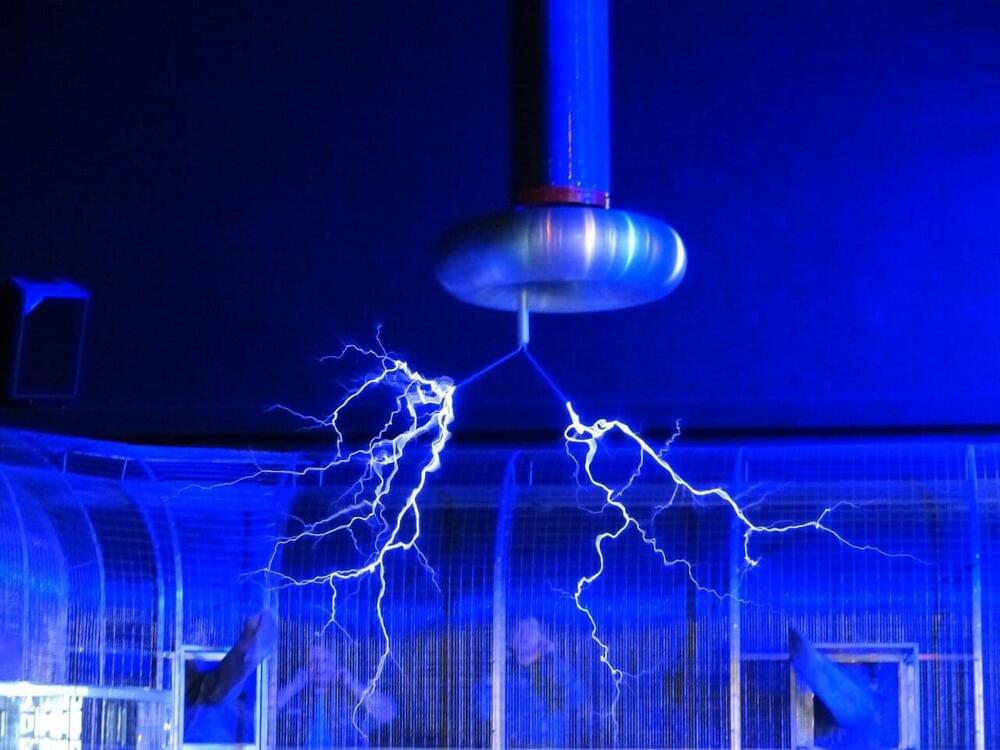
Electromagnetism is a property of spacetime itself, study finds
Imagine if we could use strong electromagnetic fields to manipulate the local properties of spacetime—this could have important ramifications in terms of science and engineering.
Electromagnetism has always been a subtle phenomenon. In the 19th century, scholars thought that electromagnetic waves must propagate in some sort of elusive medium, which was called aether. Later, the aether hypothesis was abandoned, and to this day, the classical theory of electromagnetism does not provide us with a clear answer to the question in which medium electric and magnetic fields propagate in vacuum. On the other hand, the theory of gravitation is rather well understood. General relativity explains that energy and mass tell the spacetime how to curve and spacetime tells masses how to move. Many eminent mathematical physicists have tried to understand electromagnetism directly as a consequence of general relativity. The brilliant mathematician Hermann Weyl had especially interesting theories in this regard. The Serbian inventor Nikola Tesla thought that electromagnetism contains essentially everything in our universe.
New research debunks a popular method for interstellar travel
In the 1960s, American physicist Robert W. Bussard proposed a radical idea for interstellar travel: a spacecraft that relied on powerful magnetic fields to harvest hydrogen directly from the interstellar medium.
As it’s come to be known, the Bussard Ramjet has since been popularized by hard science fiction writers like Poul Anderson, Larry Niven, Vernor Vinge, and science communicators like Carl Sagan. Unfortunately, a team of physicists recently analyzed the concept in more detail and concluded that Bussard’s idea is not practical. At a time when interstellar travel looks destined to become a real possibility, this analysis might seem like a wet blanket but is more of a reality check.
This detailed analysis was led by Peter Schattschneider, a physicist and materials science specialist with the University of Vienna and a science fiction author. He was joined by Albert A. Jackson, a physicist with the Texas-based aerospace company Triton Systems, LLC. The study that describes their findings (“The Fishback ramjet revisited”) will appear in the scientific journal Acta Astronautica in February 2022.
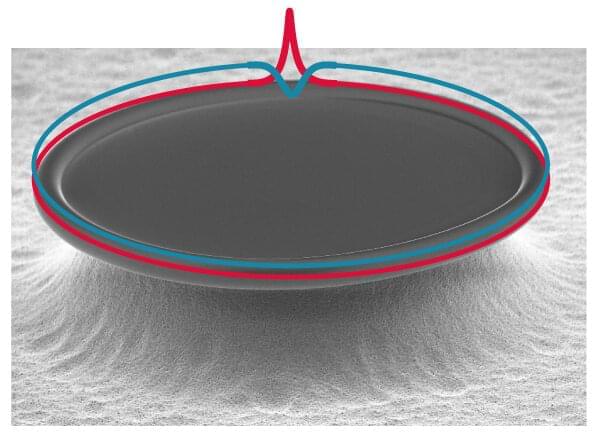
Creating frequency combs in microresonators
For the first time, scientists were able to create ultrashort dark and bright light pulses that are linked together in tiny glass rings called microresonators. Each of the flashes consist of many different, precisely defined colors: a frequency comb. The combination of the pulses increases the color range of the emitted light from the microresonators. This new light source helps to make more precise sensors to trace for example lowest quantities of explosives at an airport or for distance sensors in autonomous cars to detect obstacles on a street.
It sounds like magic: Laser light of only one color produce a rainbow of many different colors. Scientists are able to produce this strange effect in microresonators, small disks made of glass. If they send a pulsed laser beam into these structures, ultrashort packets of light waves are running in its interior in circles. And start to send out light of different, evenly spaced frequencies like the teeth of a comb. The invention of the optical frequency comb was awarded with the Nobel Prize in Physics in 2005.
Now, researcher from the Max-Planck-Institute for the Science of Light (MPL) in Erlangen and the Imperial College London were able to produce for the first time an even stranger effect: By directing two Laser beams of slightly different infrared light at the outer rim of the microresonator they got two wave packets, called solitons: one bright and one dark, which run in circles. A dark pulse means having a constant light signal that goes dark for a very short time. Both dark and bright light pulses only last for 1/1013 th of a second.
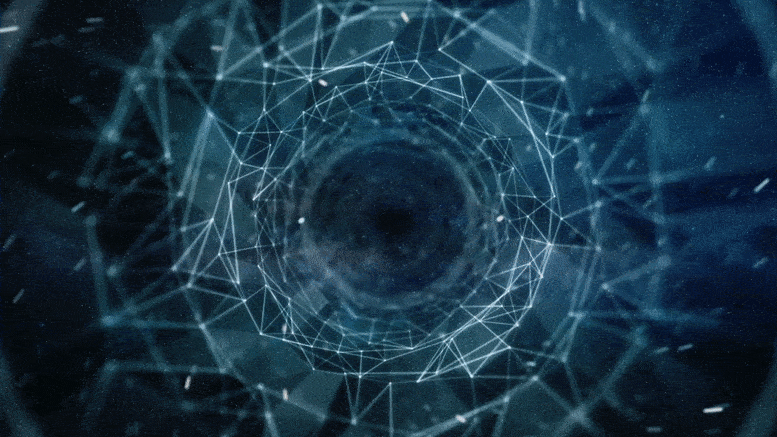
Scientists Create Synthetic Dimensions To Better Understand the Fundamental Laws of the Universe
Humans experience the world in three dimensions, but a collaboration in Japan has developed a way to create synthetic dimensions to better understand the fundamental laws of the Universe and possibly apply them to advanced technologies.
They published their results today (January 28, 2022) in Science Advances.
“The concept of dimensionality has become a central fixture in diverse fields of contemporary physics and technology in past years,” said paper author Toshihiko Baba, professor in the Department of Electrical and Computer Engineering, Yokohama National University. “While inquiries into lower-dimensional materials and structures have been fruitful, rapid advances in topology have uncovered a further abundance of potentially useful phenomena depending on the dimensionality of the system, even going beyond the three spatial dimensions available in the world around us.”
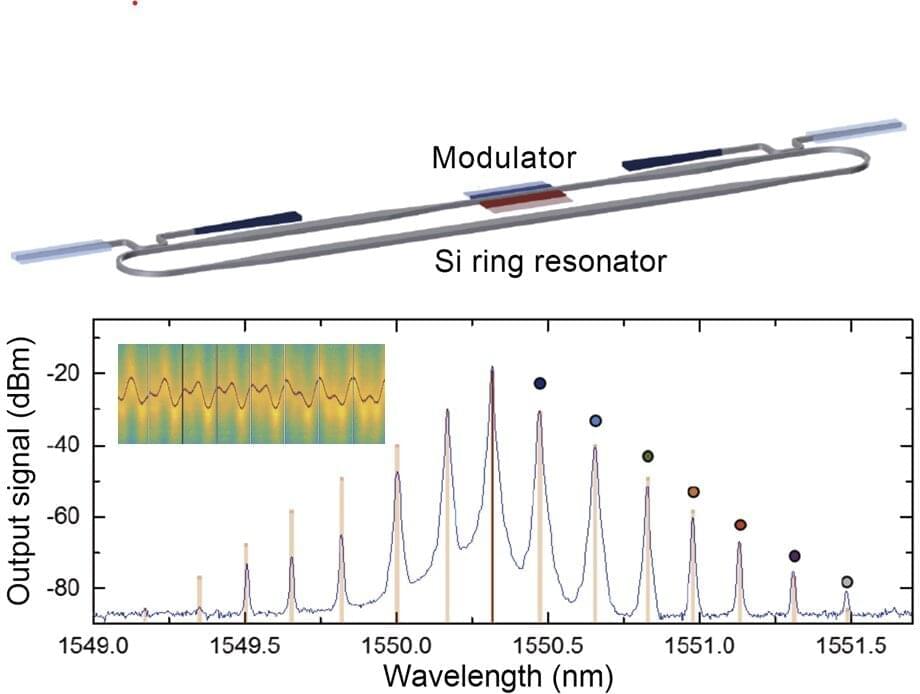
Shining a light on synthetic dimensions
Humans experience the world in three dimensions, but a collaboration in Japan has developed a way to create synthetic dimensions to better understand the fundamental laws of the universe and possibly apply them to advanced technologies.
They published their results on January 28, 2022 in Science Advances.
“The concept of dimensionality has become a central fixture in diverse fields of contemporary physics and technology in past years,” said paper author Toshihiko Baba, professor in the Department of Electrical and Computer Engineering, Yokohama National University. “While inquiries into lower-dimensional materials and structures have been fruitful, rapid advances in topology have uncovered a further abundance of potentially useful phenomena depending on the dimensionality of the system, even going beyond the three spatial dimensions available in the world around us.”
On this recent Metaverse News Network night, I’m interviewed by the host Richard Mourant and co-host Shauna Lee Lange
Topics include the prospects of technological acceleration, Metaverse development and immersive computing, transcendence and cybernetic immortality, neurotechnologies and mind uploading, outer and inner space exploration, Global Mind and phase transition of humanity, physics of time and information, consciousness, evolutionary cybernetics, Chrysalis conjecture and Transcension hypothesis, Artificial General Intelligence and cyberhumanity, transhumanism and singularity, Fermi Paradox, Omega Point cosmology, Cybernetic Theory of Mind, and more. https://www.ecstadelic.net/e_news/metaverse-news-network-liv…x-vikoulov #Metaverse #Singularity #Transhumanism #Transcension #Futurism #Cybernetics #SyntellectHypothesis #AlexVikoulov
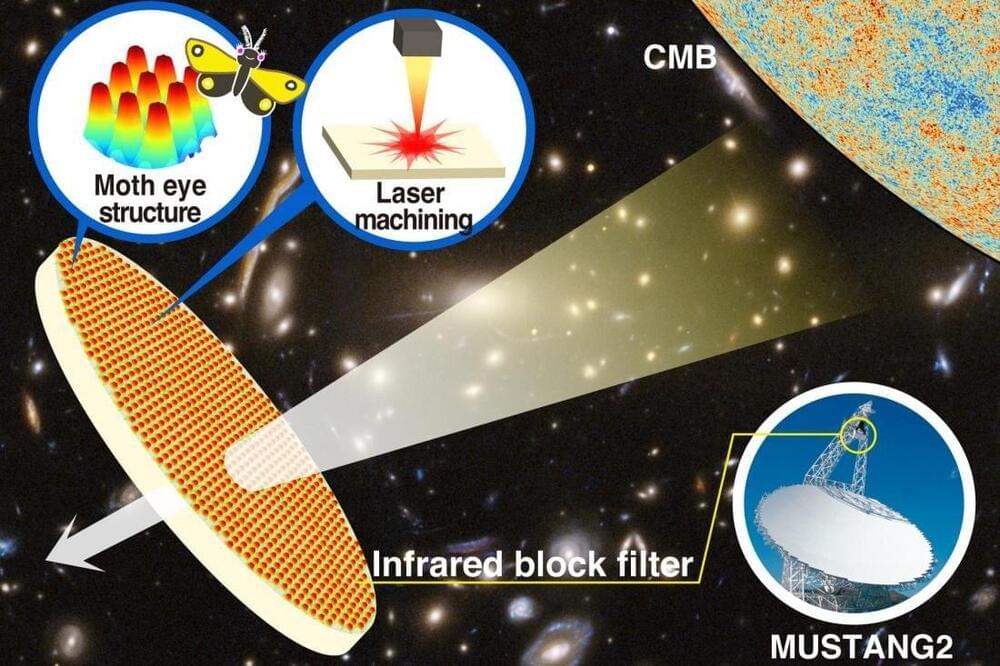
Scientists make a new type of optical device using alumina
Scientists from the Kavli Institute for the Physics and Mathematics of the Universe and the University of Minnesota, Tomotake Matsumura and Shaul Hanany, and their collaborators have made a new type of optical element that will improve the performance of telescopes studying radiation from the Big Bang.
The cosmic microwave background (CMB) is a relic radiation remnant from the big bang. It reaches our telescopes after traveling 14 billion years since the birth of the Universe. Studying the properties of this radiation, scientists infer the physics of the big bang, how clusters of galaxies form, and the matter and energy content in the Universe. Four Nobel prizes have been awarded for past studies of the CMB.
To study the CMB, telescopes must be tuned to wavelengths in which it is most intense, about 1–3 mm, and they must separate out shorter wavelength radiation that the atmosphere and Milky Way emit. Among the most effective optical elements that absorbs the short wavelength radiation but lets the CMB pass through is alumina, a material made of aluminum and oxygen and that is second in hardness only to diamond. One challenge with using alumina is that it also reflects almost 50% of the radiation impinging on it. Matsumura and Hanany have now come up with a new way to fabricate anti-reflective structures that reduce reflections fifty-fold.
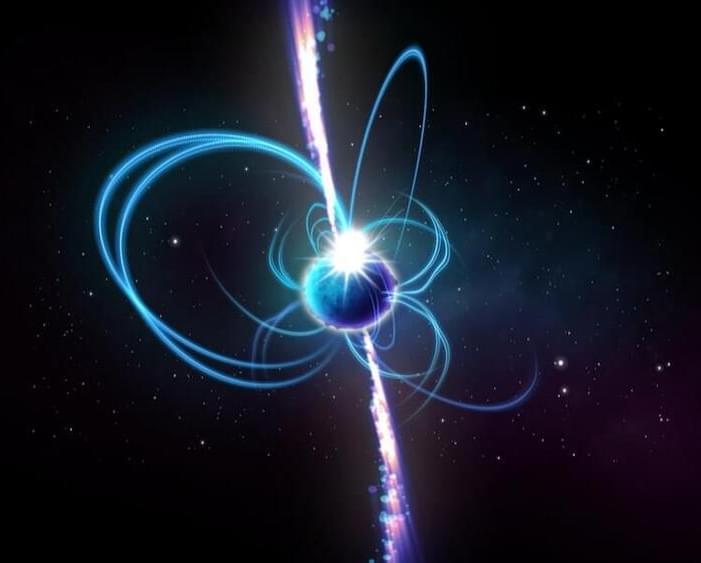
A Mystery Object in Space Flashed Brilliantly for 3 Months—Then Disappeared
The amazing thing about radio transients is that if you have enough frequency coverage, you can work out how far away they are. This is because lower radio frequencies arrive slightly later than higher ones depending on how much space they’ve traveled through.
Our new discovery lies about 4,000 light years away—very distant, but still in our galactic backyard.
We also found the radio pulses were almost completely polarized. In astrophysics this usually means their source is a strong magnetic field. The pulses were also changing shape in just half a second, so the source has to be less than half a light second across, much smaller than our sun.